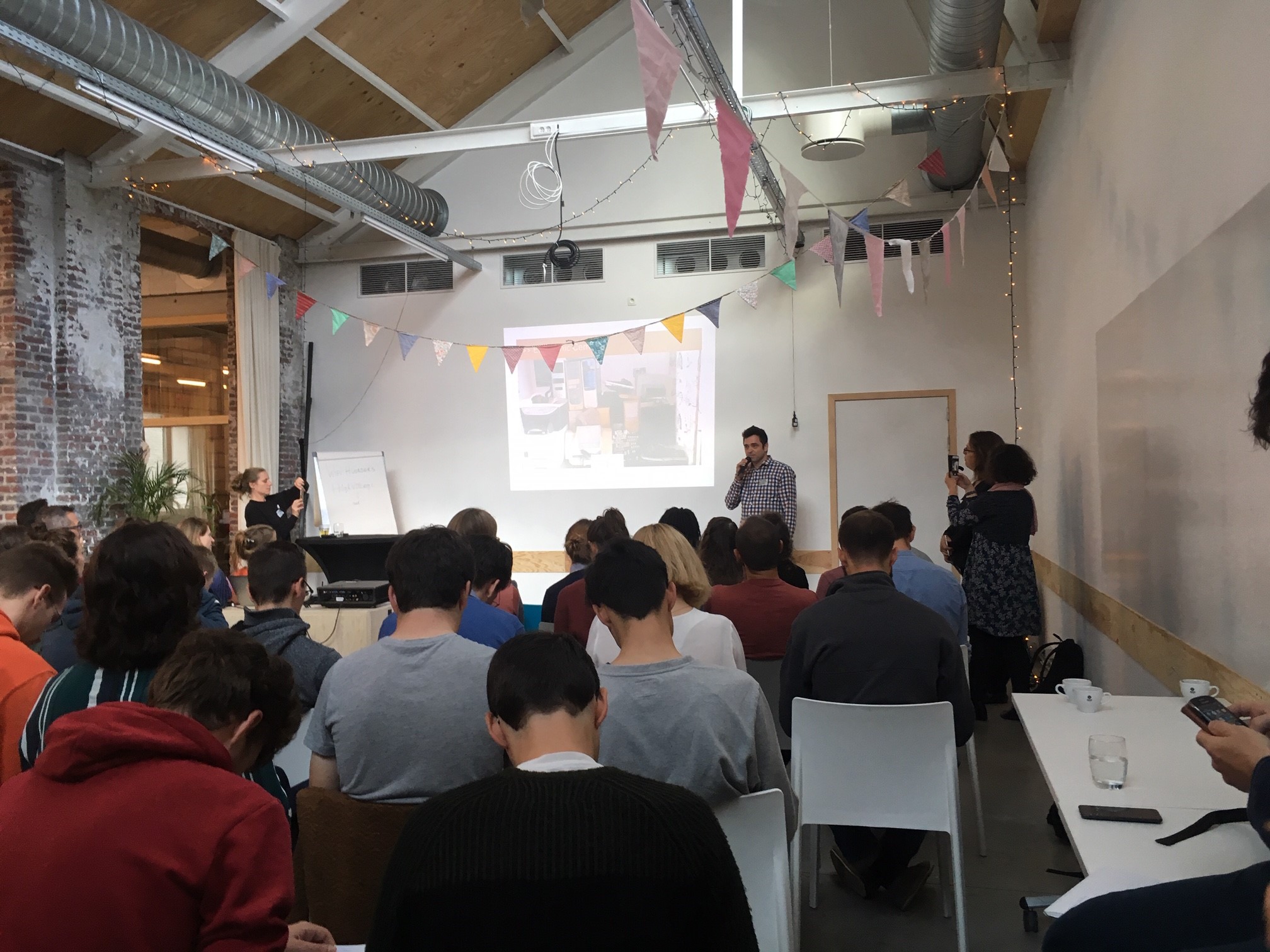At the Watt Factory on Friday 27th, 2019
Our Catapa team is proud to have been able to meet with social entrepreneurs from both Belgium and South-Africa at the Watt Factory’s Climate Meet-up organized by the Sociale Innovatie Fabriek in Ghent. It was an opportunity to discuss with people who already started to make a positive change through various projects in both countries. Most participants to the event realized how similar we all are in facing the issue of global change.

Picture 1: Round tables, here picture of the talk about the theme of energy democracy
The social innovators we met that day are active about topics such as fair farming, energy democracy and circular economy. All their projects were first presented for everyone to understand the goals and challenges of each one. Then, we gathered around in smaller groups based on themes in order to have more in depth discussions. The interesting part was to see how each project does not only relate to the environment but also to social reactions and potential improvements the projects can bring into society. A good example of this is Iziko Stoves (South Africa), an enterprise which aims at both the reinsertion of former drug abusers into employment and at improving the recycling of waste in South-Africa. This happens through 3 pillars: help to rehabilitate current drug addicts (1), teach them how to recycle items such as boilers for Iziko Stoves (2), and make sure they remain the sober best version of themselves.

Picture 2: Round tables, talk about the theme of circular economy
Another very interesting encounter at the Watt factory was with Jami Nash who explained what his company, Electronic Cemetery, does in South-Africa in order to recycle e-waste in the area of Durban. They collect unused old electronic devices from companies, individuals and public institutions as well. The collected items are then dismantled, components are separated in order, as much as possible, to be recycled or refurbished. Electronic Cemetery has, thus, both the function of making the environment cleaner by recycling, but it also creates job opportunities in the area and provides access to low income families to quality ICT and other electronic equipment. In the future, this enterprise would like to upscale its activities by opening other recycling sites in cities like Cape Town or Joburg. However, they face limitations in doing so. In Joburg, for instance, there are already 2 other well-established e-waste recycling companies which will make it harder to settle there. Our discussion with Jami Nash was, thus, a good occasion for us to hear about the challenges facing those who are at the end of the ICT supply chain, or, considering that Electronic Cemetery brings back those products into the economy, should we say “the new beginning” of the supply chain?


